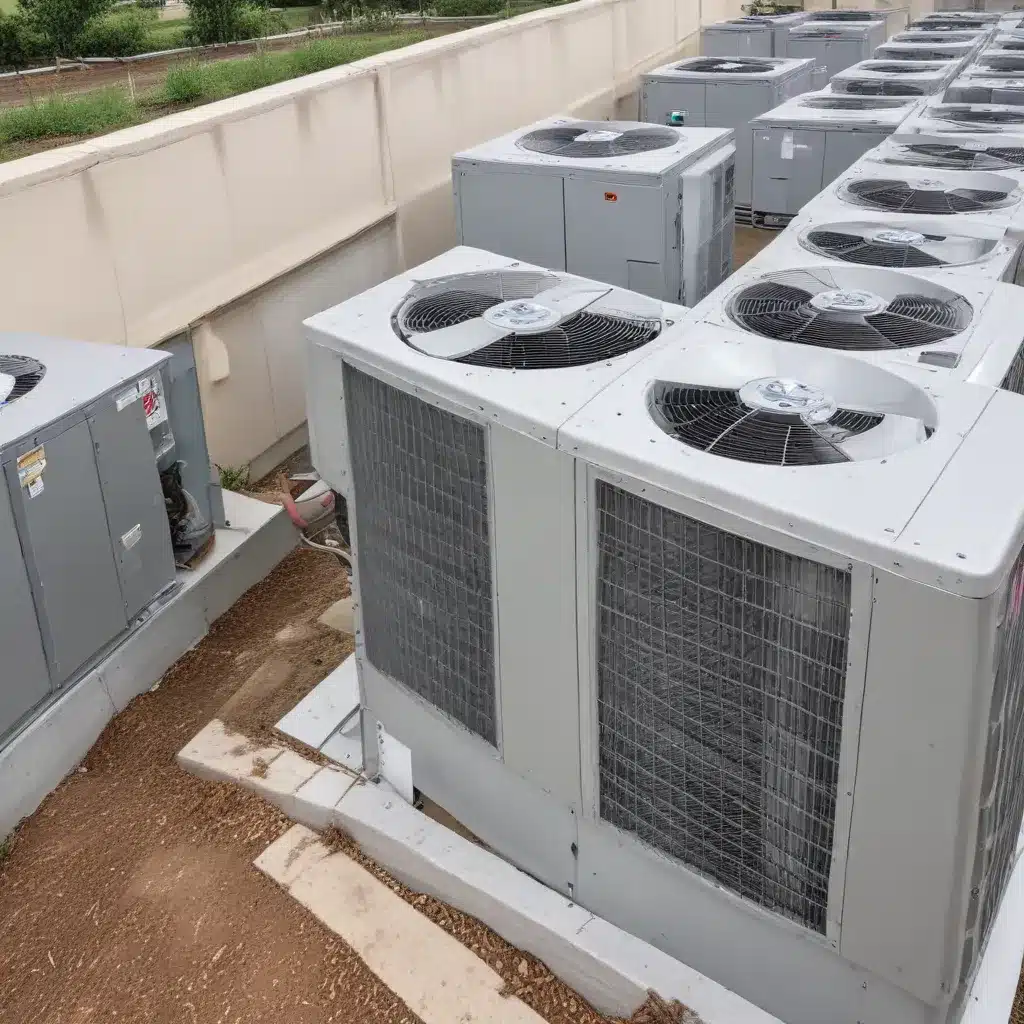
Bridging the Gap: Sustainable HVAC Practices for a Greener Tomorrow
As an experienced air conditioning specialist with decades of hands-on expertise, I’ve seen firsthand how the HVAC industry is evolving to meet the growing demand for more sustainable and energy-efficient climate control solutions. In this article, I’ll share my personal insights and best practices on aligning HVAC technologies with government sustainability initiatives, while also addressing vital aspects like maintenance, safety, and innovative trends that are shaping the future of the industry.
Sustainability has undoubtedly become a key driver in the HVAC sector, as both homeowners and businesses seek to reduce their carbon footprint and minimize environmental impact. Increasingly, we’re seeing government policies and regulations that are pushing the industry to adopt greener practices, from improved energy efficiency standards to the use of refrigerants with lower global warming potential.
One area where I’ve noticed a significant shift is in the selection and installation of HVAC systems. Gone are the days when homeowners and facility managers solely focused on cost and immediate performance. Today, they’re actively seeking out equipment that not only cools or heats their spaces effectively, but also delivers long-term energy savings and aligns with sustainability goals.
Hamilton Air Conditioning, for instance, has been at the forefront of this movement, offering a range of high-efficiency, eco-friendly HVAC solutions that leverage the latest advancements in technology. By working closely with our clients, we’re able to customize systems that not only meet their specific climate control needs, but also integrate seamlessly with their sustainability initiatives.
Optimizing HVAC Efficiency: The Key to a Greener Future
One of the most critical aspects of aligning HVAC practices with sustainability is improving energy efficiency. Energy-efficient HVAC systems can significantly reduce a building’s carbon footprint, lower utility bills, and contribute to overall environmental preservation.
As an air conditioning specialist, I’ve found that a comprehensive maintenance program is essential for maintaining optimal efficiency. Regular servicing, filter replacements, and proactive diagnostics can help ensure that HVAC systems operate at peak performance, minimizing energy consumption and prolonging the lifespan of the equipment.
Moreover, technological advancements in HVAC systems have vastly improved their energy efficiency. Innovations such as variable-speed compressors, advanced controls, and smart thermostat integration allow for more precise temperature regulation and reduced energy waste. By upgrading to these cutting-edge systems, homeowners and businesses can make a tangible impact on their environmental footprint.
Tackling the Safety Aspects of Sustainable HVAC
Alongside energy efficiency, safety is another crucial consideration when aligning HVAC practices with sustainability initiatives. The use of environmentally friendly refrigerants, for instance, has become a key focus for the industry, as many traditional refrigerants have been found to contribute to ozone depletion and global warming.
In response to these concerns, regulatory bodies have introduced stricter standards for refrigerant usage, and manufacturers have developed alternative refrigerants with significantly lower global warming potential. As an air conditioning specialist, I’ve had to stay up-to-date with these changes and ensure that my team is properly trained in the safe handling and installation of these new refrigerants.
Additionally, the implementation of robust safety protocols and ongoing technician training is essential for protecting both the environment and the well-being of HVAC professionals. By adhering to industry best practices and safety guidelines, we can help mitigate the risks associated with HVAC systems and contribute to a safer, more sustainable future.
Embracing Innovative HVAC Trends for a Greener Tomorrow
As the HVAC industry continues to evolve, I’m excited to see the emergence of innovative technologies and practices that are pushing the boundaries of sustainability. From smart home integration and predictive maintenance to the use of renewable energy sources, there’s a wealth of opportunities for the sector to become more environmentally responsible.
One trend that I’m particularly enthusiastic about is the growing integration of HVAC systems with renewable energy sources, such as solar panels and geothermal heat pumps. By harnessing the power of the sun or the earth’s natural heat, these systems can significantly reduce a building’s reliance on traditional energy sources, further enhancing its sustainability credentials.
Additionally, the rise of smart home technology has had a significant impact on HVAC efficiency. By integrating HVAC systems with intelligent sensors, homeowners can now monitor and optimize their energy usage, adjusting temperatures and airflow based on occupancy and weather patterns. This level of automation and precision can lead to substantial energy savings and a more sustainable lifestyle.
Embracing the Future: Closing the Gap between HVAC and Sustainability
As an air conditioning specialist, I’m proud to be part of an industry that is actively working to align its practices with the growing demand for sustainability and environmental stewardship. By embracing energy-efficient technologies, adopting safer refrigerants, and integrating innovative trends, we can help bridge the gap between HVAC and government sustainability initiatives.
However, the journey towards a more sustainable HVAC future is not without its challenges. Navigating the ever-changing regulatory landscape, training technicians on new best practices, and educating clients on the long-term benefits of sustainable HVAC solutions – these are just a few of the hurdles we must overcome.
But I’m confident that by working collaboratively with industry peers, regulatory bodies, and our valued clients, we can overcome these obstacles and pave the way for a greener, more energy-efficient future. After all, the health of our planet depends on our collective efforts to create a more sustainable built environment, and the HVAC industry has a vital role to play in this endeavor.
So, let’s roll up our sleeves and get to work. Together, we can unlock the full potential of sustainable HVAC practices, delivering climate control solutions that not only keep our homes and businesses comfortable, but also contribute to a more sustainable tomorrow.